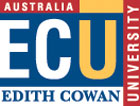Master of Public Health
Master of Public Health
Public health is a broad field which aims to improve and protect the health and well-being of the general population. As a public health practitioner, you can make a real difference to the lives of local, national and international communities. Public health practitioners help individuals and communities to have greater…
Categories
COURSE DESCRIPTION
Public health is a broad field which aims to improve and protect the health and well-being of the general population. As a public health practitioner, you can make a real difference to the lives of local, national and international communities.
Public health practitioners help individuals and communities to have greater control over their health and well-being, and to influence organisational and political environments in ways that lead to better health for all. They work across the lifespan, including the early years, child and adolescent health, and healthy aging to support population health.
We realise that public health is such a broad area, which is why this masters degree offers a variety of elective units to allow you to specialise in an area of interest. You will also work closely with public health industry professionals and complete research projects on current issues in public health, which will help form a personal portfolio of evidence to support your transition into the profession.
Course learning outcomes
Apply cognitive, technical and interpretative skills to investigate, evaluate and synthesise complex psychosocial and health issues in authentic situations.
Apply communication and collaboration skills to design and implement contributions to public health practice and scholarship.
Demonstrate expert judgement and autonomy when initiating, planning and executing a substantial public health study.
Reflect critically on a complex body of public health knowledge, research principles and methods to demonstrate mastery of public health practice and scholarship.
Career Opportunities
Public health graduates may work in health promotion or health services, epidemiology, policy development, planning and evaluation and community development. Graduates can also gain employment in fields which relate to emergency management and recovery, community nutrition, physical activity or in fields which support people with addictions.
Possible future job titles
Health Promotion Officer, Project Officer, Health Education Officer, Community Health Lead, Public Health Lead, Research Assistant/Officer
REQUIREMENTS
Academic admission requirements (Band 8) may be satisfied through completion of one of the following:
Bachelor degree in a cognate discipline; or
Where accepted, equivalent prior learning, including at least five years relevant professional experience.
English competency requirements:
IELTS Academic: An overall band minimum score of 6.5, with no individual band less than 6.0.) (Results are typically valid for 2 years and online tests are not acceptable.)
TOEFL iBT: TOEFL iBT: 84 (with no score below 17)
TOEFL Paper-Based Test (PBT): Minimum score of 573, including Test of Written English of 5.0 or better. (Results are typically valid for only 2 years)
Pearson Test of English (PTE): PTE Academic 58, with no score less than 50 for postgraduate standard entry courses. (Results are typically valid for only 2 years)
EDUCATIONAL INSTITUTION
Edith Cowan University (ECU) is a large, multi-campus institution serving communities in Western Australia and internationally.ECU was awarded university status in 1991, but despite its relative youth, the University has a proud history of more than a century of service to education in Western Australia and is recognised for its teaching and learning, excellence in research, and partnerships with the community.We have more than 23,300 students, including around 18,500 undergraduates and 4,800 postgraduates. Approximately 3,600 international students attend the University, originating from 104 countries.We are a progressive University with courses developed through ongoing industry input, and employing lecturers who engage fully with their students. We’re a university that knows while knowledge is important, understanding comes from experience –experience that enables you to adapt what you’ve learned to whatever opportunities come your way. Because that’s when you do more than just survive in this world. You thrive in it.




